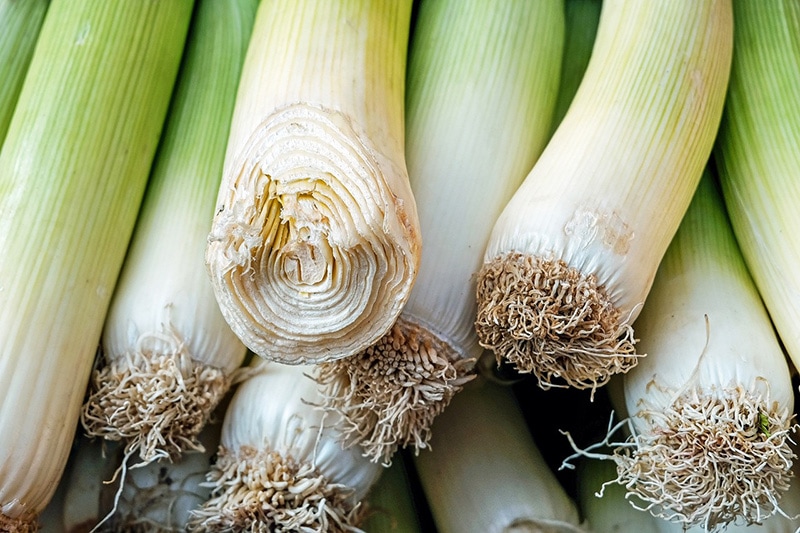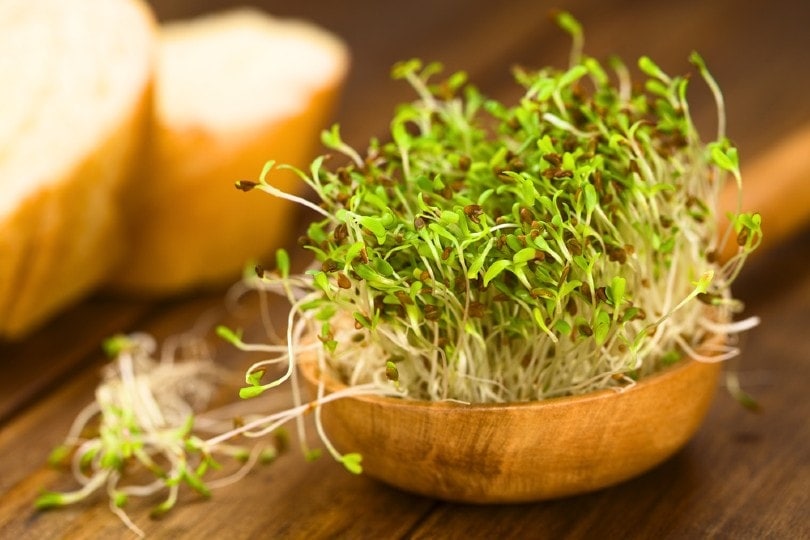Can Bearded Dragons Eat Plum? Vet-Reviewed Nutritional Facts & FAQ
Updated on
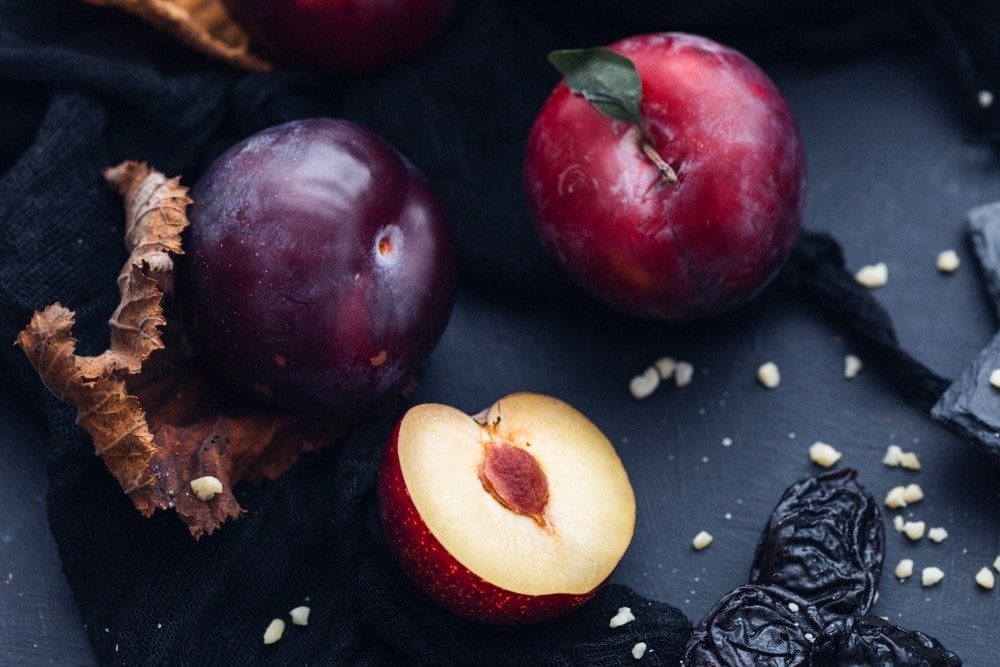
Click to Skip Ahead
Plums are a fantastic fruit that can benefit humans and many animals. It is a tasty treat, and if you want to share this delicious fruit with your reptile pet, we’ve got great news for you! Plums are safe for bearded dragons to consume, although it is crucial to feed them plums in moderation. Feeding too many plums to your beardie can cause several issues, from minor stomach aches to more severe conditions.
If you want to learn everything about feeding your bearded dragon this fruit treat, read the article below.
Bearded Dragon Diet
Bearded dragons are omnivores, feeding on various foods, from animals to plants. The best diet plan to offer your bearded dragon will be one inclusive of both live insects and some veggies. You can offer your beardie fruits, of course, in limited amounts.
When your bearded dragon is still a juvenile, their diet must consist primarily of live insects, with a smaller amount of plants. When your beardie grows up, this ratio will become the other way around, with their diets consisting primarily of greens and vegetables, and approximately 20% live insects. Feeding your adult beardie the correct balanced diet will ensure a healthy weight and prevent obesity.
While adult bearded dragons need to eat more plant matter, they adore eating insects and bugs and love the challenge of chasing them around the enclosure. The most common live insects to feed your beardie are crickets, worms, and roaches. The best way to decide how big of an insect you should offer your beardie is to look at the space between their eyes—the insect shouldn’t be larger than the space between the beardie’s eyes.
| Crickets: |
These are a staple live food for many pet bearded dragons. They are a good source of protein which is especially important when they are growing.
|
| Worms: |
Another popular choice, mainly used to supplement the primary feeder insects. Some worms, such as wax worms, have higher fat content and should be only fed as an occasional treat.
|
| Roaches: |
Roaches are another great source of protein for bearded dragons and are low in fat, making them a healthy meal. The best roaches to give your bearded dragons are Dubia roaches, which provide the best nutritional value.
|
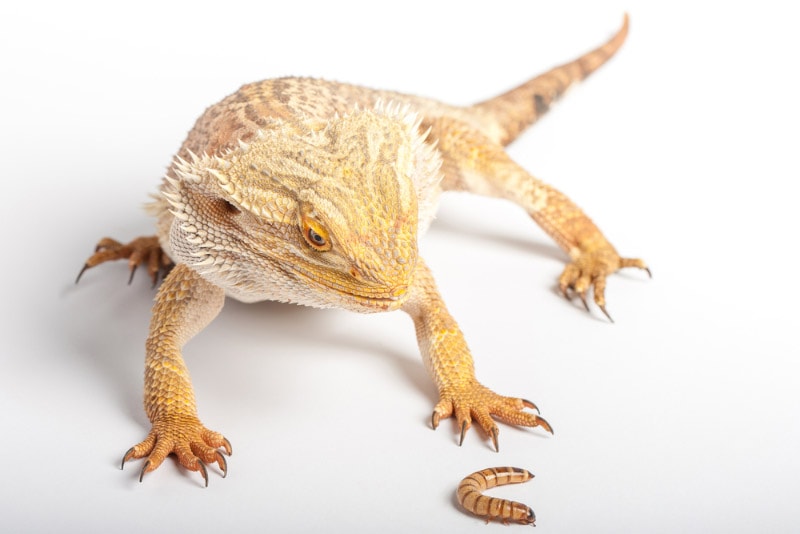
Can Bearded Dragons Eat Vegetables?
Vegetables are a significant food source for your bearded dragon. They provide your beardie with a healthy and balanced diet and should make up the majority of an adult beardie’s diet. A variety is important and some veggies that you can offer include:
- Acorn squash
- Bell peppers
- Butternut squash
- Prickly pear
- Collard greens
- Dandelion greens
- Mustard greens
- Turnip greens
- Cabbage
- Green beans
Can Bearded Dragons Eat Fruit?
When it comes to fruit, while it is delicious and healthy for our pets, you should only feed them a small amount occasionally. There are plenty of fruits that are safe for your beardie to enjoy, while there are some which can be toxic for our reptiles. You should avoid citrus fruit because they can be too acidic for your beardie’s stomach. Before offering fruit to your reptile, make sure to cut it into bite-sized pieces to reduce the risk of choking. Fruits that are safe for your beardie to eat include:
- Apples
- Blueberries
- Grapes
- Guava
- Mango
- Papaya
- Plums
- Strawberries
- Peaches
Can Bearded Dragons Eat Plums?
Many people adore the taste of plums; they even decide to grow a tree in their own garden. However, you must wonder whether feeding plums to your pets is safe. While plums are safe for your beardie to consume in small amounts, it is crucial not to overfeed them this fruit. Beardies have very sensitive stomachs, so when you offer them too many plums and other fruit, they can quickly get stomach problems and issues with the digestive system.
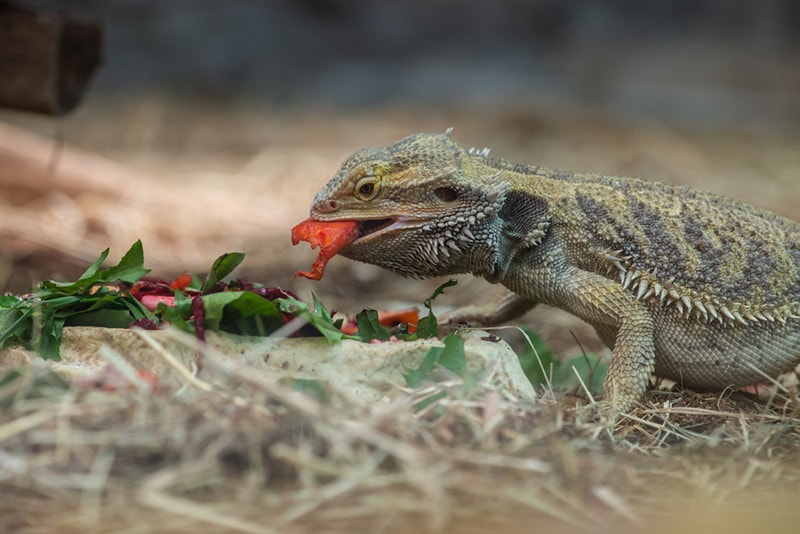
Risks of Feeding Bearded Dragons Too Many Plums
Plums have an incorrect proportion of calcium and phosphorus for bearded dragons. When there are high levels of phosphorus and lower levels of calcium in a particular food, it can cause some health complications. When bearded dragons consume too much food with an incorrect ratio of these two minerals, it can lead to Metabolic Bone Disease. As a general rule, offer plums only every 2 weeks or so.
How to Safely Feed Plums to Your Beardie
Before feeding plums to your bearded dragon, it is essential to learn how to do it properly to avoid complications and let your pet enjoy this fruit safely. Firstly, make sure to wash the fruit thoroughly. Remove the pit and cut the plum into bite-sized pieces to prevent choking. Ensure never to feed your beardie processed or canned plums because they are often very high in sugar and preservatives.
Conclusion
Learning about the safety of vegetables and fruits for our pet bearded dragon will help us differentiate between healthy foods and those we should avoid. Plums are considered a healthy treat for our lovely pets, but staying moderate is necessary. Every fruit can become a hazard for our pet reptiles when consumed excessively, so it is crucial to remain balanced. You should be safe if you feed your beardie fruits and plums once a week or every 2 weeks.
Featured Image Credit: Neven Krcmarek, Shutterstock


